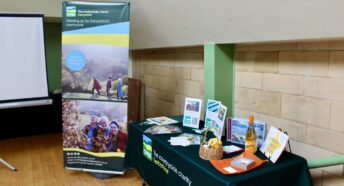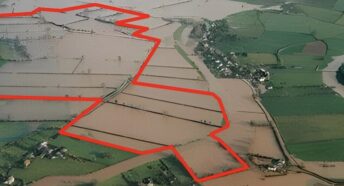Shop UK... and enjoy home delivery

CPRE Kent has been highlighting the plight of rural businesses struggling to survive the coronavirus lockdown and encouraging as many people as possible to support them.
Now a free website that promotes UK-made or designed consumer products has launched a home-delivery feature across the country.
YouK enables users to “shop for everything that is made in the UK, from cheese to hand cream, jumpers to gin, beds to bikes”.
“We launched a year ago last April with the simple idea to support all UK businesses,” said Janey Millar, of YouK.
“Some 95 per cent of all UK businesses are already on the site, including thousands of innovative brands that are little known. We are particularly proud of the boost that small businesses can receive, and helping consumers discover them.”
Derek Poots founded the website in Edinburgh. “UK businesses have responded magnificently to their customers’ needs,” he said. “They can deliver to you, and they need your support now, more than ever. Our site enables people to find home deliveries for products such as meat, breakfast cereal, soap and wine. It’s a win for everyone.”
YouK has an interactive map, with search and filter functions at both national and local level. For example, you can see more than 700 UK breweries on the map, zoom down to your local area and filter by types of beer or see those that are gluten-free.
“Each time we buy a national or local product we cut product miles, on average, by a factor of 10. And each local spending choice supports communities and local jobs and, in turn, all of our public services such as the NHS.”
YouK earns commission on products bought through some links.
- To visit YouK, click here
Tuesday, May 5, 2020
- A number of important documents have yet to emerge. For example, a rigorous transport plan and a finalised air-quality assessment. The latter is critical given that allocations at Teynham will feed extra traffic into AQMAs.
- There seems to be no coherent plan for infrastructure delivery – a key component of the plan given the allocations being proposed near the already crowded Junction 7.
- There seems to have been little or no cooperation with neighbouring boroughs or even parish councils within Swale itself.
The removal of a second consultation might have been understandable if this final version of the plan were similar to that being talked about at the beginning of the consultation process. It is, however, radically different in the following ways:
- There has been a major shift in the balance of housing allocations, away from the west of the borough over to the east, especially around the historic town of Faversham. This is a move that raises many concerns.
- A new large allocation, with accompanying A2 bypass, has appeared around Teynham and Lynsted, to which we are objecting.
- Housing allocations in the AONB around Neames Forstal that were judged “unsuitable” by the council’s own officers have now appeared as part of the housing numbers.
- Most of the housing allocations being proposed are on greenfield sites, many of them on Grade 1 agricultural land – a point to which we are strongly objecting.
Concerns about the rush to submit the plan
The haste with which the plan is being prepared is especially worrying given the concentration of housing in Faversham. If the town is to take a large amount of new housing, it is imperative that the policies concerning the area are carefully worked out to preserve, as far as possible, the unique nature of the town. The rush to submit the plan is likely to prove detrimental.
As Swale does not have a five-year land housing supply, it is open to speculative development proposals, many of which would run counter to the ideas contained in the current plan. Some are already appearing. This is a common situation, and one that, doubtless, is a reason behind Swale’s haste.
Our overriding fear, however, is that this emphasis on haste is ultimately going to prove counterproductive. This is because it is our view that the plan, in its current form, is unlikely to pass independent examination. We are urging Swale to listen to and act upon the comments being made about the plan and to return the plan to the council with appropriate modifications before submitting it to the Secretary of State.
Essentially, this means treating the current consultation not as the final one but as the ‘lost’ second consultation.
The consultation ends on Friday 30 April and we strongly urge residents to make their opinions known if they have not already done so.
Further information








